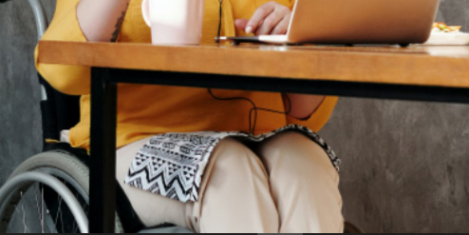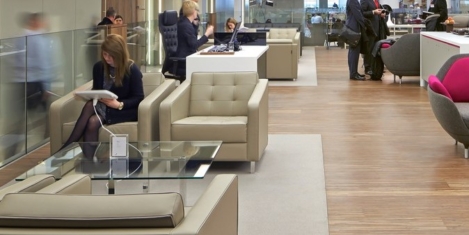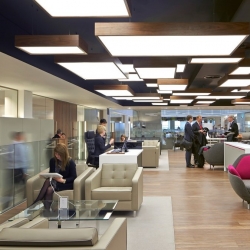December 4, 2020
Employee happiness and loyalty tested by furlough schemes
 A newly commissioned survey of 1,000 people conducted by Censuswide on behalf of KnowBe4, claims that almost a third of respondents (28 percent) feel less loyal to their employer post-furlough. Of these individuals, 70 percent conceded to either not feeling supported by their employer, receiving little to no information or guidance prior to returning to work and/or did not receive regular communications from them. In fact, the actions employers take, or lack thereof, to ease the transition from furlough appears to play a significant role in employee sentiments upon their return to work. (more…)
A newly commissioned survey of 1,000 people conducted by Censuswide on behalf of KnowBe4, claims that almost a third of respondents (28 percent) feel less loyal to their employer post-furlough. Of these individuals, 70 percent conceded to either not feeling supported by their employer, receiving little to no information or guidance prior to returning to work and/or did not receive regular communications from them. In fact, the actions employers take, or lack thereof, to ease the transition from furlough appears to play a significant role in employee sentiments upon their return to work. (more…)







 Earlier this month, in a sudden and unexpected turn of events, the prime minister’s chief adviser, Dominic Cummings, walked out of 10 Downing Street for the last time, having resigned/been asked to leave, depending on whose account of the episode you believe. However, the affair unfolded in reality, it seems clear that the departure of Cummings and Director of Communications, Lee Cain, was precipitated by workplace conflict and a series of internal disagreements, which had pushed their relationships with certain colleagues to breaking point.
Earlier this month, in a sudden and unexpected turn of events, the prime minister’s chief adviser, Dominic Cummings, walked out of 10 Downing Street for the last time, having resigned/been asked to leave, depending on whose account of the episode you believe. However, the affair unfolded in reality, it seems clear that the departure of Cummings and Director of Communications, Lee Cain, was precipitated by workplace conflict and a series of internal disagreements, which had pushed their relationships with certain colleagues to breaking point. 


 A large number of British companies companies say they plan to install monitoring software of some kind to keep an eye on employees working from home, according to a new survey. Around 20 percent of employers said their firms have either implemented, or plan to implement, online software which monitors their remote workers.
A large number of British companies companies say they plan to install monitoring software of some kind to keep an eye on employees working from home, according to a new survey. Around 20 percent of employers said their firms have either implemented, or plan to implement, online software which monitors their remote workers. 
 The pandemic has seriously altered how we work. According to statistics published by the
The pandemic has seriously altered how we work. According to statistics published by the 
 A new white paper claims that while supplier codes of conduct are important, they are ineffective if their requirements are not met with actions to bring about transparency. To be effective, codes of conduct should support an authentic determination to embed company values and to foster strong business relationships that encourage honest communication and transparency that include monitoring the effectiveness.
A new white paper claims that while supplier codes of conduct are important, they are ineffective if their requirements are not met with actions to bring about transparency. To be effective, codes of conduct should support an authentic determination to embed company values and to foster strong business relationships that encourage honest communication and transparency that include monitoring the effectiveness. 
 It has now been more than eight months since the government first advised people to work from home if possible, due to COVID-19. The shift to remote working happened suddenly in March and quickly became part of everyday life; in April 2020 alone,
It has now been more than eight months since the government first advised people to work from home if possible, due to COVID-19. The shift to remote working happened suddenly in March and quickly became part of everyday life; in April 2020 alone, 
 With a new national lockdown, the situation in the UK remains unpredictable and complicated, and renewed pressure to work from home has forced many organisations to reverse their back-to-work plans, according to a new study from
With a new national lockdown, the situation in the UK remains unpredictable and complicated, and renewed pressure to work from home has forced many organisations to reverse their back-to-work plans, according to a new study from 


 A vast majority of managers (75 percent) faced challenges with employees when working remotely, causing concerns within businesses preparing for the second UK lockdown.
A vast majority of managers (75 percent) faced challenges with employees when working remotely, causing concerns within businesses preparing for the second UK lockdown. 










December 2, 2020
Creative firms have most to lose from a loss of serendipity
by Gary Chandler • Comment, Workplace design